Duane: Well Francois came to Prince Albert right at the same time. I preceded him by a year, I guess. Francois had been working in Ottawa in the Resource Inventory group, at the beginning of the biophysical, and he had PhD in large saw fly. He was very unhappy, so the group decided that he was suited to be a warden. So, they sent him to Prince Albert as a warden.
Francois and Dawn arrived and the first time I met him, he went to the Chief’s office, and that classic Parks way, they assigned somebody to show you around. So, when we ran into him, he was walking down the back alley at the housing area. So, he comes to me, and we roll down the window, when we see this guy. He says “Are you George Eward?” He’d been assigned to George Eward for the day, and George went and hid on him because he didn’t want to work with a spy from Ottawa. The poor guy, coming to his dream job he’s led to believe and the guy he’d been assigned to for the day is hiding on him, because he doesn’t want to work with the spy from Ottawa. So that’s how his first day of work started. We got him into the truck with us and took him to the coffee shop where we knew George was hiding, at the compound with the gravel truck drivers. We made him take Francois out for the day. So Francois got to shadow George Eward for half of the summer and George would teach him important skills like shooting skunks that got trapped in the cattleguard at the buffalo paddock because skunks spread rabies.
Francois went on to Wood Buffalo before I did but we worked together there. He was so enthusiastic about the Warden Service. In Prince Albert he was convinced we should go back to patrolling with dog teams like they did at the beginning of the Park, and personally did some patrols with his own sled dogs. He was a lot of fun to work with. He went on to become a Park Ecologist at Terra Nova and then the same job in Cape Breton and then was doing environmental assessment on the Rideau Canal when he died at fifty. He had a short career. He always said, “Live fast, die young, leave a beautiful corpse.” He did that. In the pantheon of Warden stories, I think Francois deserves to be there.
My other experience with a legend was Sid Marty who came to work in Prince Albert. So, we had this interesting influx of people at the same time. There was Jim MacIntrye came from Revelstoke/Glacier. He’d been the (Rogers) Pass warden for quite a while and desperately wanted to get out. He had kids that were school age so that’s where they put him. So, Jim and Kathy MacIntrye came to Prince Albert, Paul and Andrea Galbraith, Brian Sheehan was made permanent. He had been there, but he was made permanent. This was all in the same competition, the same list. Sid Marty came, and Sid was put out on the west boundary, at a boundary station. It was totally off grid, diesel generator, they moved in during the fall. He was given the worst truck because he was new. There was a cascading order of trucks … you remember the truck wars?
So, he had the most remote place, I think Myrna was pregnant, I don’t think they’d had their baby yet or the baby was very small, but that scenario. Newborn or pregnant wife, generator that is not always up to par, and boundary …. Well, the Park plowed the road but you were again last priority, because they had to come all the way over Waskesiu to plow you out, and he had the crappiest vehicle.
So, Sid was not a happy camper, with full justification. So anyway, one time, and I don’t know if this was two incidents or one, but I’ll roll it into one. The light plant went down and he was trying to get out and he got his truck was stuck. So he had a stuck truck and a downed light plant. I’m assigned to go drive the plumber/electrician, our Parks guy, to get the generator running. So, we drove across the shortest way to get there which was the 57 Trail. It was a single lane fire road across the middle of the park, otherwise you have to drive way around. So, we cut across the 57 and I’m coming from town so I get to have a four-wheel drive. I’m 20 years old and we go and get the guy working on the light plant, and Sid and I get into the truck and we’re going to go get his truck out of the ditch. So down the road we go in my truck, to get his truck out of the ditch. The only way to get him out is to pull him out backwards and that works. So, I get it out, and think, well this is going fairly well so let’s just keep going. I’m not thinking about his experience trying to steer the truck backwards while I’m pulling him. Finally, I could get a sense that “Okay, he wants me to stop”. Sid gets out of the truck and comes raging up to my truck, He’s mad because I have a better truck, I’m the junior guy and everything is not going well, and then I’m pulling him down the road backwards while he’s trying to steer. That was my great experience with Sid Marty, but things got better after that.
Not long after that they moved Sid and Myrna into town and they decided that Boundary Warden Station was not going to be staffed anymore but he coined the name “Radar” for me, so all the wardens called me Radar. Like from MASH, Radar O’Reilly, Colonel Potter’s little fixer. So, I was Jack Dickenson’s little fixer, because I’d been there the longest. Dickenson said a number of times to the new staff, “Duane knows his way around. Just follow him.” This was unbeknownst to me, I never knew about it. But they would just be pissed off that Dickenson was using me as a way to communicate to them. So I became Radar.
One day I went over to the office, and on the blotter …. That was the other thing, there was only one desk and it had been mine. Anyway, on the desk there was this little cartoon of a little creature with big glasses and Radar, written on it. Only Sid had the artistic skills to do that. So that was my tangling with a legend. When he wrote “Men for the Mountains” my thought was we will need a book called “Men for the Swamps”, the story of the rest of us.
SH: I love it, good one Duane.
Duane: In his first book of poems, “Headwaters” he wrote a poem “Liturgy for a Dead Fuel Pump” about Ken Sinclair fixing the light plant that day, so literature came out of the incident. (Tape 36:55)
SH: Is there anything about the Warden Service, that you would want future generations to know?
Duane: I think that, sort of the sense of the backcountry or district warden where people had the job to connect with a land and resources, and that was their primary responsibility. It was an important thing that has potentially been lost in terms of the full geography and complexity of the park, and also that people that were attracted to that job, I think, most of them had a very deep sense of public service. I also see that as a responsibility in terms of a relationship with visitors, geographically, or people who use the backcountry. Wanting people to have good experiences so things like care and maintenance of trails and facilities, that was ingrained. My sense is that’s lost.
I just did a trip in Kootenay a year ago, this past September, the Rockwall Trail. It had been on my bucket list for a long time. I went in there, I went through all the hoops doing the reservation thing, and of course you get an imperfect reservation, but we had a reservation that led us hopscotching over trail sites, stuff like that. So, when Parks Canada information says that sometimes closer to the date of your trip, there may be vacancies come open and you may have an opportunity to tweak your reservation, so check before you’re ready to go to see if that can be changed. So, I took that at face value and went into the Visitor Centre in Kootenay the morning we were to go on the trail and they said you have to call the 1-800 number in Ottawa for that. I said, “No I don’t think so, I think it happens here.” And they say “No you have to call the 1-800 number. So, I went back outside to call the 1-800 number and I’m sitting in my car, and the person on the 1-800 number says “No, we don’t do that”. So, I said “Okay, I have a reservation, I have an itinerary, I’m going to go out there and do what I damn well please because I believe there is nobody enforcing this, nobody is working in the backcountry anymore and there will be no impediment to me doing what I damn well please”. So, the woman in Ottawa said, “Wait a minute and she patched me through to the Park.” So, I said right away “Where are you?” She said I’m in the Kootenay Park, Radium Hot Springs Visitor Centre.” I said, “Well I was just there, and they told me they couldn’t help me.” She said “Well I’m down in the basement”. So anyways, in the end she did yeoman’s service, gave us some advice and got us a better reservation. But our experience when we got on the trail affirmed what I had known. We got there, and the campsites are beautifully designed with a cooking zone, and separate sleeping areas. I’ve seen cases where you were instructed to follow these practices but the layout of the campgrounds in the end didn’t really allow you to do that. You know like cook so far away from your tent and that sort of thing. Well I could not fault the design of all the campsites at all ….they were perfect. But nobody was using them as intended either, because there is no enforcement and people are just left to sort of figure it out on their own. There’s nobody there, you know, the food lockers are great, people use them and they’re practical but nobody, I had a sense that nobody had encountered somebody like a warden or somebody in authority and it’s also incredibly hard, as based on my experience, to talk to somebody who can explain things to you or fix something. The person on the top floor of the Visitor Centre in Kootenay was not going to refer me to the person who could help me in the basement. That sense of disconnect, I think we have a much better educated public these days using the backcountry, which is a good thing but it’s also very clear where you are out there you can do what you damn well want. So that’s something that we really lost.
SH: What made the Warden Service such a unique organization?
Duane: I think largely it was just the caliber of people who were attracted to the job and their commitment. When you look at some of the parks, how many years people put in as seasonal to move up, or people who left full time jobs to go seasonal, to get to be a park warden. There’s a mix of the allure of the job and and the National Parks ideal. It was a unique organization. Parks is still a unique organization. It attracts people of common interest and high ideals.
The other thing that was important from my perspective, and a lot of people in our time was the national mobility as well. Mobility is a double-edged sword. Sometimes you need to be in a place for a while to really understand it, and the user groups and the issues, but you can also gain a lot of experience fast by shifting the channel. So those were a couple of things, that I see.
This is and was a very unique organization other than our parallels with other Ranger Services, particularly the US, and I think they have been more successful in the concept of the US Park Ranger, sort of creating a big tent job, if you want to call it that where they still kept that identity as Rangers but there’s a lot of responsibilities. People do different jobs, but they create this identity that is really useful for the Parks Service to have that as their face and voice on the surface. I think Parks Canada lost that with the Warden Service and the organization is struggling for an identify. Now it’s the public in a red chair. I guess it’s not bad, but it’s different.
SH: Okay Duane, now I want some stories. Do you have any lasting memories as a park warden? Favourite cabin, horse, trail, humourous stories, etc. (Tape 47:55) (Previously answered with his top ten days)
SH: Do you ever miss being a Warden?
Duane: No, my cup is full.
SH: Do you have any photos of yourself as a Warden that you would like to donate to the Project, or that we may copy? Do you have any artifacts/memorabilia that you would like to donate to the Project (Whyte Museum).
Duane: I’ll try and find something. So much of my stuff is slides but I’ll come up with something.
SH: What year did you retire? What do you enjoy doing in retirement?
Duane: I retired in 2008. I’ve always had … my second passion was gardening. Typically, you’d get to a park and the deer or the rabbits or something was eating your garden. I was never ambitious enough to make a stockade or a major fence, you weren’t there that long, but you are always trying something. Plant a tree …. the crew comes with the snowplow and snaps it off in the winter or whatever. I can remember when we were in Jasper, I wanted to re-wild … there was a grove of aspens because we had the house, the only house by the trailer park, remember?
SH: Yes
Duane: So, there was a grove of aspen and the elk were of course eating the suckers when they came up. They’d eat them right away, so the grove was decadent. It was going to die out, so Toni (Klettl) had some cages he’d made for the vegetables, so I repurposed them, so that I could get some young aspen understory growing. We’d brought wood lilies in from Hinton and things like that and we were plunking them down, trying to create a little wild ecosystem in the backyard. So, Marguerite was out there one day and this woman leans out over the fence from one of the trailers and says “You know what? I think the Park would give you some weed and feed and you could clean up that yard.” Our efforts in re-wildling were not appreciated, ahead of our time.
I took Master gardening training after I got to Gabriola. We had a half-acre on Gabriola and I turned it into a pretty special little garden. The garden was definitely a selling feature of the house. Now we have about 20 acres and the bones of a beautiful abandoned landscaping project here which I have jumped into. Re-nurturing, it keeps me young. and gardening is a joy.
SH: You and your partner also travel a lot Duane?
Duane: It’s worked out that way in the last couple of years. We have not been traveling that much but it’s just worked out. It sort of picked up. After the Tour de Mont Blanc experience last year, it really whetted our appetite for a little more time in Europe. We’ll give Norway a try. And then Tejomaya, through his spiritual practice has been drawn to India, and I’ve done two trips to Indian with him, pilgrimages effectively. But he’s going this fall for a major two and a half months spiritual retreat and journey of his own design. I’m going to the Southwest US, Bears Ears, my own version of holy land.
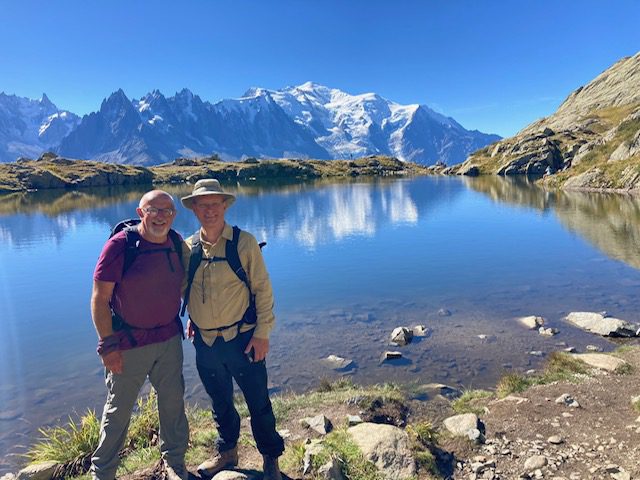
In retirement, Tour du Mont Blanc with husband Tejomaya 2022.
SH: That will be great. I like following you on Instagram, you have great stuff going on. Is there anything I haven’t asked you that you think I should know about the Warden Service?
Duane: I’m going to go back to your question on people that you may not have talked to.
Ray Whaley – Riding Mountain. He retired just outside of Riding Mountain.
Dan Couchie – He retired out of Pukaskwa, but he was in Wood Buffalo, Cape Breton Island. Probably one of our very, very successful Aboriginal wardens. Dan and Eva were amazing community members, practiced their culture, wonderful family. He built birchbark canoes with his daughter in Pukaskwa. He’s a real thoughtful pleasant man.
SH: Where do you think he might live now?
Duane: I believe he lives in Heron Bay. Somebody in Pukaskwa should be able to put you in touch and he is on Facebook as well.
.
Jean Fau
SH: There’s an interesting, funny guy. No, they haven’t interviewed him. Where would he have retired to?
Duane: Christopher Lake, and his wife is on Facebook for sure. Bev Fau. (End Tape 58:43)
SH: Is there anything I haven’t asked you that you think I should know about the Warden Service?
Duane: I think to me, where this may lie, the movement in Indigenous led protected areas and conservation. I see in media and other sources the growth of first nations land guardians and monitors. I think the Haida watchman was one of the early examples of where this got off the ground, in how to model the idea of co-management in Haida Gwaii. The Haida wanted to have a parallel organization to Parks with responsibilities and they set up a watchman system. They focused on the significant cultural sites, which often overlapped with areas having ecological significance. on parks. Now that movement is big in Australia, it’s becoming Canada wide, and I think that that represents a potentially growing and different view of how protection activities and the land stewardship activities in Parks will happen in the future.
It will be the native land stewards and knowledge keepers that are guiding protection efforts in Parks where that connection hasn’t been severed by colonialism over time.
Part of that could be a very exciting future. It will be different than the Warden tribe but it will be tribal nonetheless.
SH: What a great closing line. (End Part 4 Tape 2:51)
Susan Hairsine worked for Resource Conservation and Operations in Mt. Revelstoke/Glacier, Jasper and Banff National Parks, as well as for Public Safety in Western and Northern Region for over 30 years. She obtained funding for an oral history of Parks Canada’s avalanche personnel and oversaw the successful completion of the project. Her experience working with several the interviewees during their careers has been an asset to the current project. She was also the Executive Assistant to the Chief Park Wardens of Jasper and Banff National Parks.
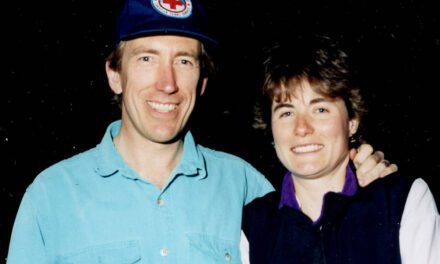
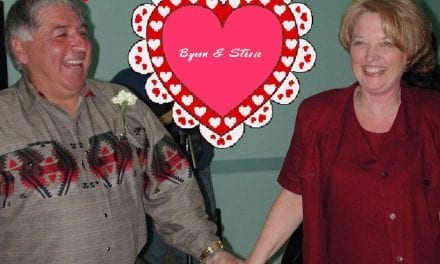
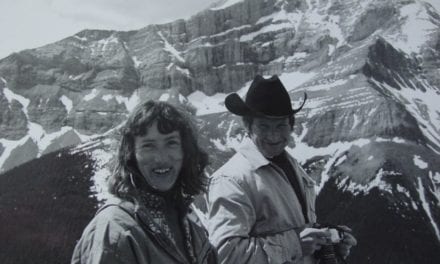
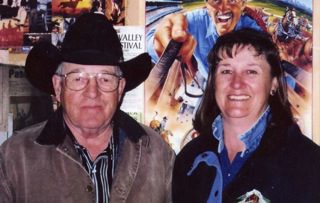
Duane, not sure if you will get this but here goes anyway. Just re-read your interview for the third time. One of the best in the alumni group for sure Not surprisingily,your narritive is very well structured , meaningful, touching and personal on many levels. Some of the old partners and pictures, congered up some chuckles and tears at the same moment. To the outside world we all grow old, but not to those who walked in and lived the warden fraternity. Stay well Duane..
P.S. on the eve of a signifgant solar esciplse tomorrow, I am reminded of the day of another similar eclipse in 1979 I think, where you and I were digging, burning and burying a smelly anthraxed bison near Horniday cabin. Sure fun……..